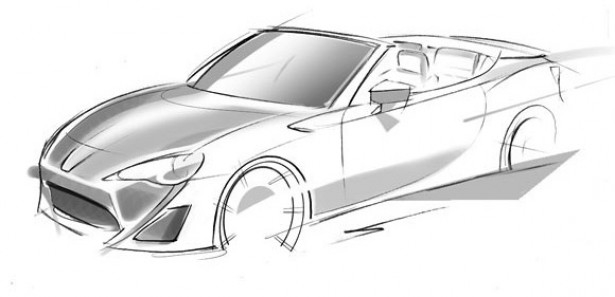
Here it is folks, the drop-top we’ve been waiting to see: the Scion FR-S convertible. Okay, there are several convertibles we’re waiting to see, most notably the 2015 Alfa Romeo Spider built by Mazda, but the convertible FR-S is definitely in the top two.
The soon-to-be-unveiled convertible concept is officially called the Toyota FT-86, which, as you might notice, is just one letter off the coupe’s global GT-86 nameplate. Here’s where it gets tricky. You see, in the rest of the world, the Scion FR-S is sold as the Toyota GT-86. When this convertible concept is inevitably put into production and sold, in the US it’ll be an FR-S variant. Everywhere else on the globe, however, it’ll be a Toyota GT-86 convertible. The Scion FR-S – as brilliant as it is – has a confusing heritage, and this new convertible version doesn’t help matters much.
We’ve loved the FR-S since the moment we learned of its existence. Once we drove it, we were hooked. Toyota made it clear from the get-go that the rear-wheel drive coupe was designed with a drop-top in mind, so we knew we wouldn’t have to wait long for the ‘vert.
The above photo is obviously only a rough sketch (courtesy MotorAuthority) of a concept. Toyota hasn’t made any specifics available, but we presume the same normally aspirated 2.0-liter Boxer four-cylinder with D4S direct fuel injection will be found under the hood – for now.
While the convertible will undoubtedly be a bit slower and a bit less stiff in the corners, we still have confidence it’ll be absolutely brilliant. As we know, when a vehicle loses its top, the chassis rigidity goes down the drain. Since the designers knew a convertible would be inevitable, we can only imagine they pre-tensioned the body for going topless.
As soon as more is known about this roadster, we’ll be sure to bring it to you. For now, though, we’ll just hope the TRD supercharger package will be ready in time for the convertible launch – what a combo that’d be!


